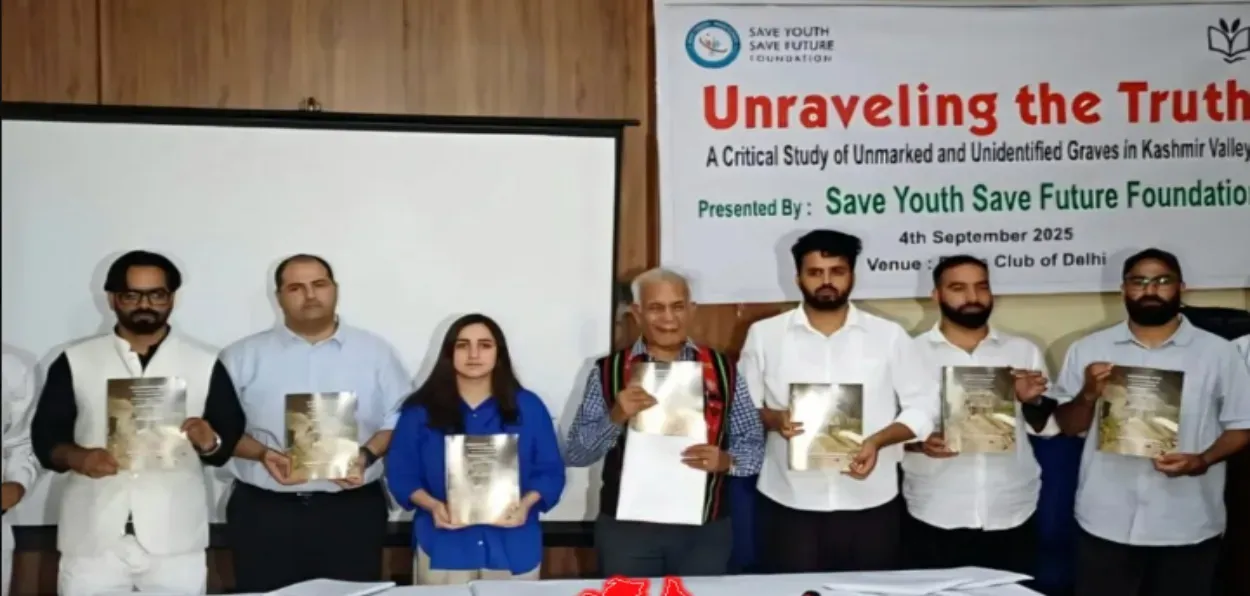
Dr. Khalid
There is substantial, multi-source evidence — government dossiers, U.S. State Department reports, independent think-tank and academic analyses, and decades of reporting — showing that Pakistan-based militant groups (and, according to many analysts, elements within Pakistan’s security apparatus) have been responsible for the rise, growth and sustenance of the Kashmir insurgency.
That constellation of training, logistics, sanctuaries, and directed operations aligns with the working definition of a proxy war: a state (or state elements) employing non-state and, increasingly, state-armed actors to pursue nefarious strategic objectives while maintaining deniability.
Terrorism in Kashmir has produced a complex and tragic legacy of violence. Counter-insurgency operations by security forces have led to the elimination of a large number of Pakistani terrorists who infiltrated the region, as well as the local recruits drawn into terrorism. However, the terrorist groups have been responsible for widespread killings of civilians, members of minority communities, and common people.
There is a sizeable number of documents, citable evidence — reports by reputable human-rights organisations and contemporaneous news accounts — showing that militants in Kashmir have kidnapped and killed innocent civilians (government employees, medical staff, tourists, villagers, suspected informers).
Numerous individuals forcibly taken by militant groups never returned to their homes, leaving families and communities in enduring anguish and uncertainty. Evidence and eyewitness accounts suggest that many of these innocent civilians were killed and disposed of in unmarked graves, their resting places remaining unknown to this day.
This issue of unmarked and unidentified graves in Jammu and Kashmir has, for decades, been shrouded in suspicion, politicisation, and propaganda. Competing narratives—some driven by foreign interests—have exploited this tragedy to question India’s commitment to human rights and undermine its national integrity. In this sensitive and complex environment, the recent research conducted by the Save Youth Save Future Foundation offers a landmark contribution to restoring factual clarity, fostering dialogue, and promoting justice.
Their study, “Unraveling the Truth: A Critical Study of Unmarked and Unidentified Graves in Kashmir Valley,” examined nearly 4,500 graves across four districts—Baramulla, Kupwara, Bandipora, and Ganderbal. Through ground surveys, GPS mapping, interviews with local communities, families, surrendered militants, and religious leaders, the Foundation has provided data-driven insight into the long-standing debate surrounding these graves. This article reviews the key findings and explores their significance for national security, social cohesion, and policy formulation.
The study’s results are both sobering and clarifying. Approximately 62% of the graves were found to contain foreign militants, a fact consistent with decades of cross-border terrorism and infiltration attempts into the Valley. Many of these individuals remained unclaimed, as Pakistan has long refused to acknowledge their involvement—choosing instead to deny responsibility while allowing covert operations to continue.
Local militants, accounting for 30% of the graves, were often identified and claimed by families. The research also traced 70 graves back to 1947, likely belonging to tribal raiders involved in the first Indo-Pak conflict. Perhaps most tellingly, only 9 graves were confirmed to be civilian burials, challenging widespread allegations that the graves predominantly represented victims of state violence.
The report responsibly acknowledges that some civilian casualties likely resulted from crossfire or, more so, from targeted kidnapping and killing by terrorists. However, the overwhelming majority of unmarked graves, according to the study, were of militant origin. These findings undermine narratives that frame India’s security operations as indiscriminate or driven by oppression.
India’s democratic framework is based on transparency, accountability, and the rule of law. The data offers a factual rebuttal to external propaganda efforts that weaponise Kashmir’s human tragedy to erode India’s credibility on the global stage.
ALSO READ: Most unmarked graves in Kashmir are of unclaimed Pakistani jihadis
The findings of 'The Save Youth Save Future Foundation' mark a turning point in addressing one of Kashmir’s most sensitive issues. By offering empirical evidence, honouring all victims, and advocating for truth without prejudice, India reaffirms its commitment to justice, transparency, and national unity. The responsible dissemination and implementation of these findings will not only counter false narratives but also promote healing, peace, and long-term stability in the region—an objective that aligns with both humanitarian values and India’s national interest.
